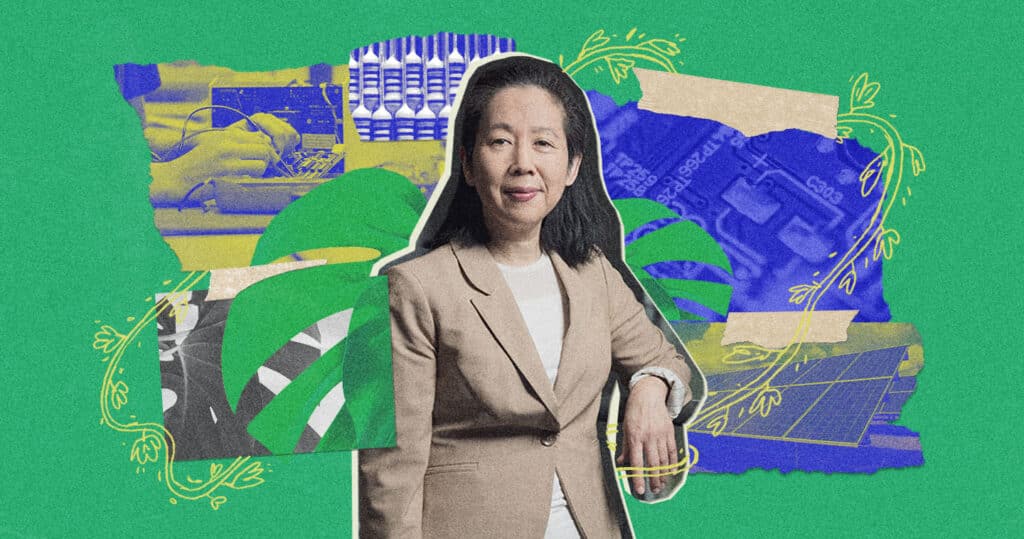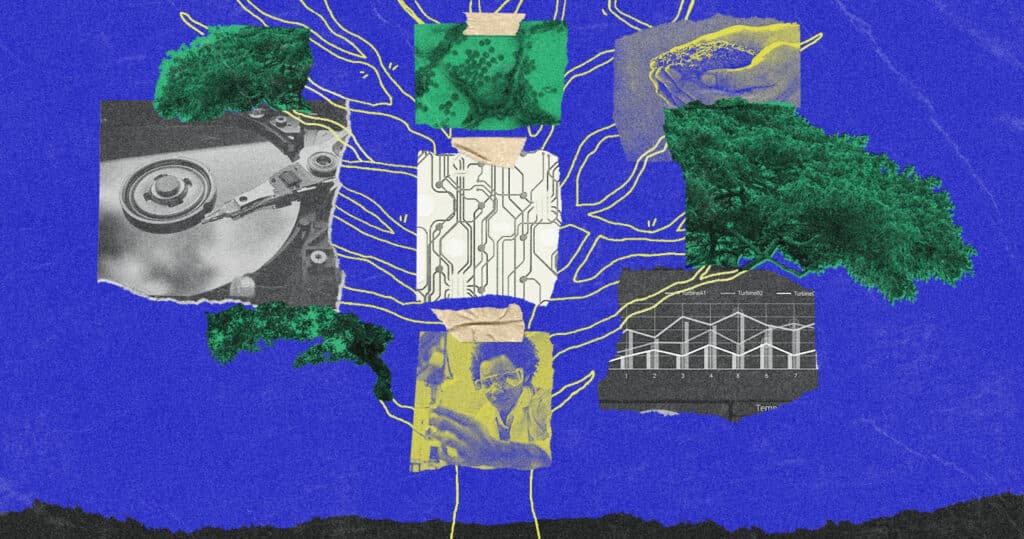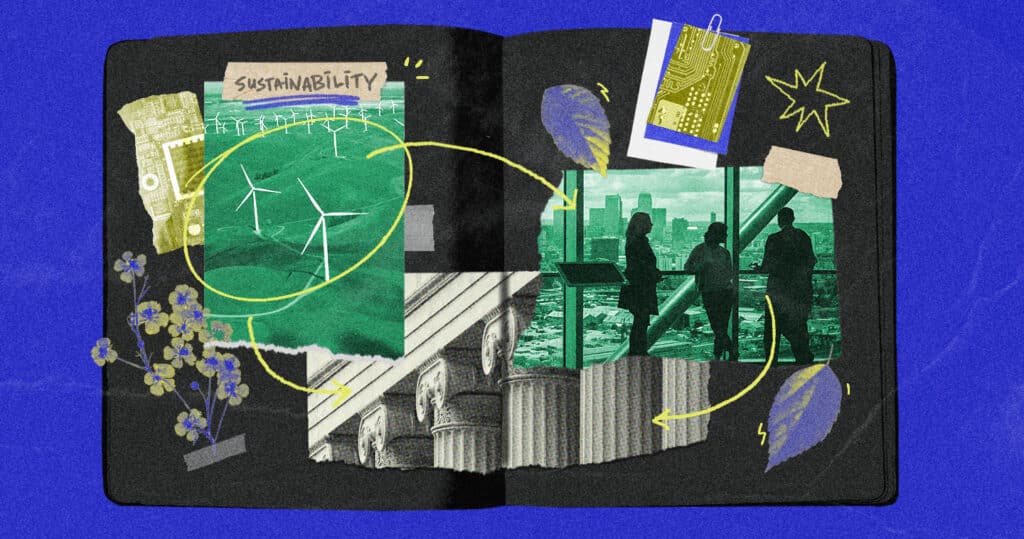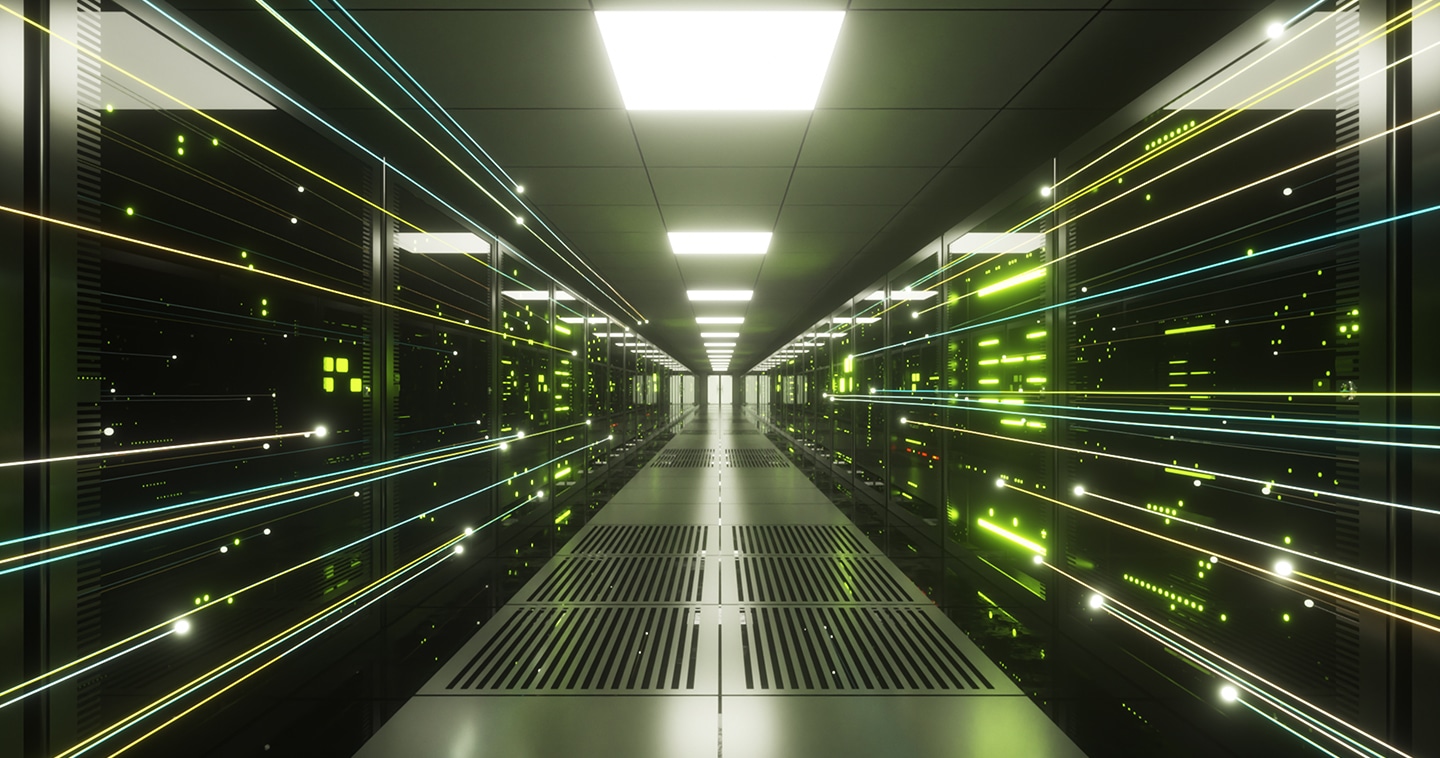Why Collaboration Matters for Climate Action
Western Digital’s newest ESG goals are bold, focused on establishing the company as a leader in sustainability. While optimization plays a role, the implementation of ambitious technology to meet these new goals is key. Capacity leadership for the HDD business unit, for example, plays a key role in the company’s climate action.
However, achieving these goals requires collaboration. While Western Digital has the resources and the talent to execute, academia has the expertise in the latest academic research, and government support can help the company understand how its developments fit into the wider constellation of climate action.
Business as usual
For Huihui Lin, director of technology and talent for HDD at Western Digital, technological innovation comes part and parcel with sustainability. His work focuses on making ESG aspirations a reality.
“We identified three key pillars for the future of the HDD business, five to 10 years down the road, and sustainability is one of those pillars,” Lin said, “but how do we go about achieving that?”
When pursuing technical goals, like capacity leadership, it’s easier for Lin and the teams at Western Digital to execute toward a strategic goal. The HDD group has skilled engineers in spades and strong relationships with business partners, making technology innovation an area of strength for the company. Driving that innovation gets trickier when expertise isn’t as easily accessible.
“Exciting things happen when you are open to new experiences, perspectives, and challenges.”
“When projects are led by internal champions, we are most successful,” Lin said, “but we don’t have many internal experts on life cycle analysis, circular economy, or sustainable materials. We are at the stage of setting up strategies, and expertise is instrumental.”
Lin and his colleagues knew they had to bring that sustainability expertise in-house. A colleague of Lin’s found an article about Dr. Inez Hua, a professor with extensive research experience in sustainable electronics at Purdue University, as well as the work of her Ph.D. students. It was a chance encounter, but Lin saw an opportunity. After some deliberation, Lin and Hua decided that her upcoming sabbatical would be the ideal time to lend her expertise to Western Digital.
“As a business, we are so focused on performance, capacity, speed, and efficiencies, but for Dr. Hua, she’s focused on carbon footprint, conserving resources, these kinds of metrics,” explained Lin.
“That really opened our eyes and inspired us.”
An academic lens
In reality, what Dr. Hua offered was much more than ESG metrics. Through her expertise and communication, Dr. Hua galvanized teams across the HDD business unit to take climate action and sustainability goals into their own hands.

“I’ve done research on sustainable electronics for my whole career, so I can come in and help create new collaborations and break down non-technical barriers,” said Hua. “It’s incredibly exciting to blend my knowledge with hands-on experience with the technology and people.”
From global operations to HR, Dr. Hua has connected and empowered teams to tackle climate goals by connecting them with groups and resources around the company. As a newcomer to the organization, her academic lens provides new perspectives on challenges and habits that spark change.
“The most important thing she brought to our team was excitement and energy. Dr. Hua really opened our eyes to a more holistic view of our business,” said Lin. “There are a lot of little projects for sustainability, but they weren’t interlinked. Dr. Hua was able to get visibility on those and build a connected, global view on sustainability.”
In addition to Dr. Hua’s impact across the business unit, she also helps forge a stronger connection with the academic world. Dr. Hua has invited Western Digital colleagues to speak with her students at Purdue, introducing the next generation of tech talent to the challenges of sustainability and data storage.
“I think it shows my students that their skills are useful and valuable,” Dr. Hua said, “that there’s opportunities in this field that you can get excited about. We certainly are.”
The G in ESG
The final piece in the climate collaboration puzzle is the role governments can play in uniting academia and business in pursuit of high-level policy goals for entire industries. For Dr. Robert Smith, an American Association for the Advancement of Science (AAAS) Science & Technology Policy Fellow in the Office of Western European Affairs, this collaboration is vital for innovation and climate action.
“Cooperation is key because no one entity, whether it is a university, company, industry, or government, has all of the answers, talent, and resources. This is why cooperation between business and government is key,” Dr. Smith said. “Each brings a valuable perspective.”
Dr. Smith believes that the strength of these institutions lies in collaboration, not competition, because of his own personal experience. Having done academic research at Carnegie Mellon University, and then applying his skills and expertise at Western Digital as a senior manager and technologist, Dr. Smith understands how collaboration lies at the heart of innovation.
“Government can create the environment for business and academia to innovate and thrive, while business and academia help government understand which innovations are possible with technology,” he said. “This type of collaboration helps all parties anticipate and plan for the future.”

Ultimately, all three institutions, business, academia, and government, are focused on the future and pushing technology forward to make the world better. Working together makes perfect sense, like how Western Digital is working with local governments to source renewable energy for its manufacturing facilities.
“In the end, a stable and healthy society is good for business, so businesses and universities should have a strong interest in effective government,” concluded Dr. Smith.
We should do this again sometime
For Lin, Dr. Hua, and the teams back at Western Digital, this great experiment proved to be invaluable. Dr. Hua’s expertise sparked innovation and collaboration, and she’s excited to continue working with the company in an advisory role.
“I’m really enjoying this, and I want to keep doing it,” Dr. Hua said. “It’s been so exciting to talk with people and to get eyes on issues in sustainability other than just climate change.”
For Lin, this yearlong sabbatical is a proof-of-concept for his department moving forward. The blueprint: Bring in experts, connect them with industry-leading tech and talent, and let them do what they do best.
“We are hoping to build a pipeline in the future so we can have more experiences like this,” said Lin.
“Exciting things happen when you are open to new experiences, perspectives, and challenges.”
Dr. Robert Smith’s opinions are his own and do not reflect the views of his office or the U.S. Department of State.
Artwork by Rachel Garcera




